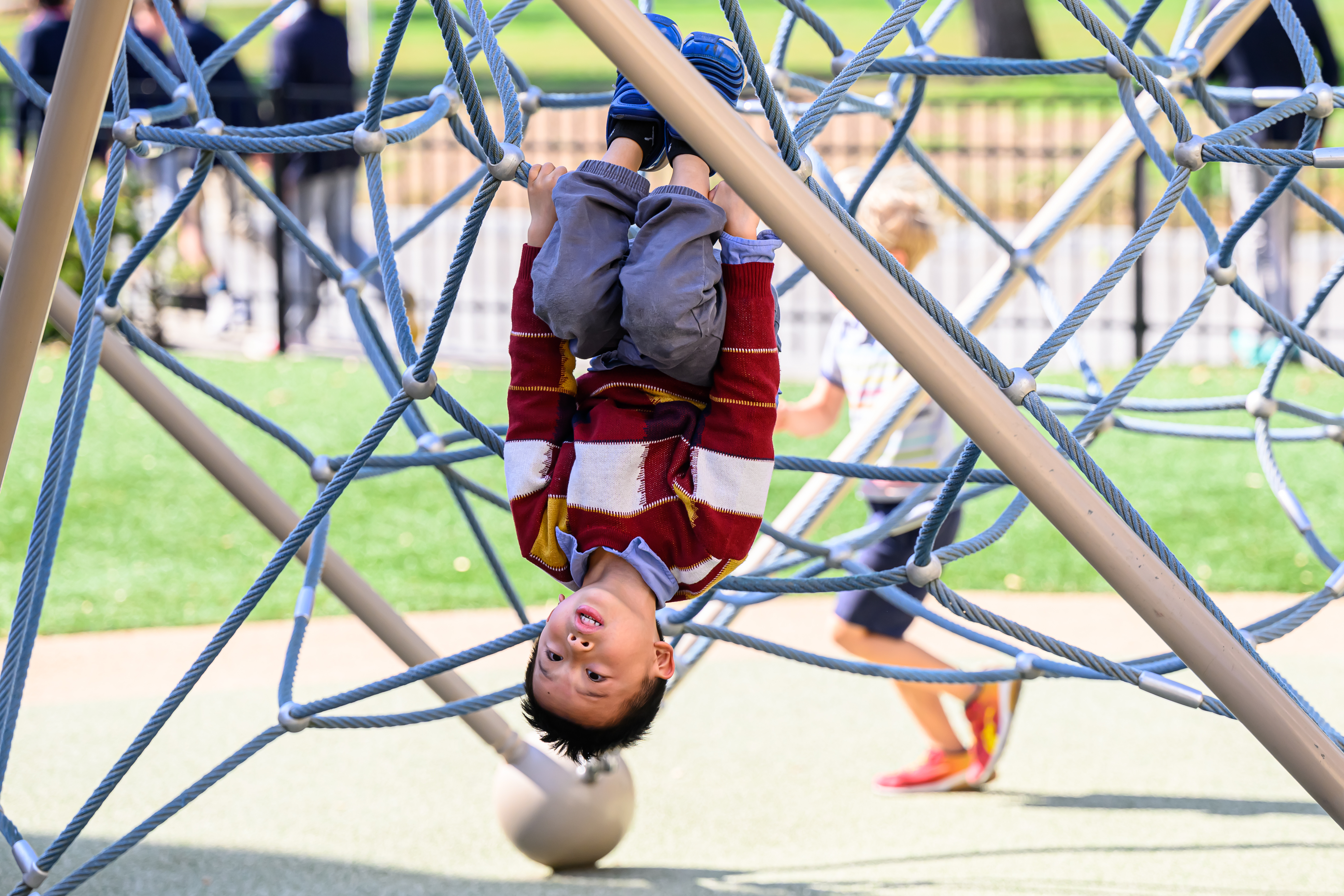 It’s a natural instinct to prevent your child from doing something that appears to be risky or dangerous. But allowing children to take small risks and establish a sense of adventure can have a positive impact on their development.
It’s a natural instinct to prevent your child from doing something that appears to be risky or dangerous. But allowing children to take small risks and establish a sense of adventure can have a positive impact on their development.
It’s no secret that most young children have an innate desire to conquer things. They want to be perceived as capable; they want to be big enough, strong enough, and smart enough. Boys in particular have an instinctive drive to experience adventure, and according to a 2011 study, too many restrictions on play can negatively impact the development of a child. The study titled “Risk Deficit Disorder” by David Eager and Helen Little examines children who experience limitations on their play, and their research indicates that these children can be “prone to problems such as obesity, mental health concerns, lack of independence, and a decrease in learning, perception and judgment skills.”

Eager and Little, along with many other researchers and educational experts, believe that exploration and the ability to take managed risks not only promotes, but is essential to, the healthy development of a child.
According to Fessenden Pre-Kindergarten Teacher Alicia Kolovson, the shared sense of adventure children have often appears and comes to life on the playground. Her students are “always trying to find corners of the playground that they can turn into their own little tree house or cabin—a little land that they’ve conquered.” This, Alicia believes, is part of a natural desire to take risks, embrace imagination, and develop an understanding of themselves and the world around them.
 Alicia says that it’s important to understand that “boys want to push the limits of what they can physically handle, and that’s normal.” What looks like risky behavior—things like jumping off of a rock or making it to the “tippity-top” of the climbing structure to be “King of the Castle”—might make some teachers or parents cringe. But Alicia and her colleagues continually pause before they put the kibosh on an activity and ask themselves “why?” If the reason is because it feels a little bit too risky, they wait and watch. They are experts at putting themselves into positions that are close enough to catch students if they fumble (sometimes quite literally), but far enough away that children feel empowered to make their own decisions and experience authentic outcomes.
Alicia says that it’s important to understand that “boys want to push the limits of what they can physically handle, and that’s normal.” What looks like risky behavior—things like jumping off of a rock or making it to the “tippity-top” of the climbing structure to be “King of the Castle”—might make some teachers or parents cringe. But Alicia and her colleagues continually pause before they put the kibosh on an activity and ask themselves “why?” If the reason is because it feels a little bit too risky, they wait and watch. They are experts at putting themselves into positions that are close enough to catch students if they fumble (sometimes quite literally), but far enough away that children feel empowered to make their own decisions and experience authentic outcomes.
These skills that are often developed on the playground are actually quite important and will stick with children throughout their lives. The ability to take healthy, age-appropriate risks teaches kids to be self-sufficient, fosters the spirit of childhood, and creates a healthy sense of adventure which, in turn, manifests itself as a love for learning if nurtured in the right way.
Read On

Does a High-Quality Pre-K Matter? What Researchers and Teachers Say
4 Questions an Education Consultant Asks When Visiting Private Kindergartens

